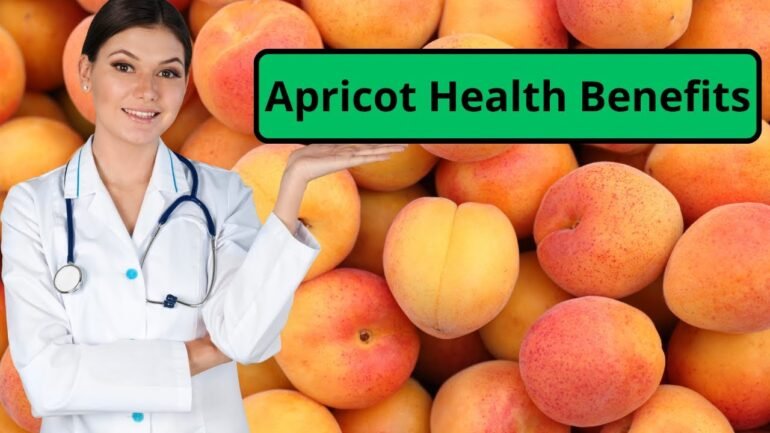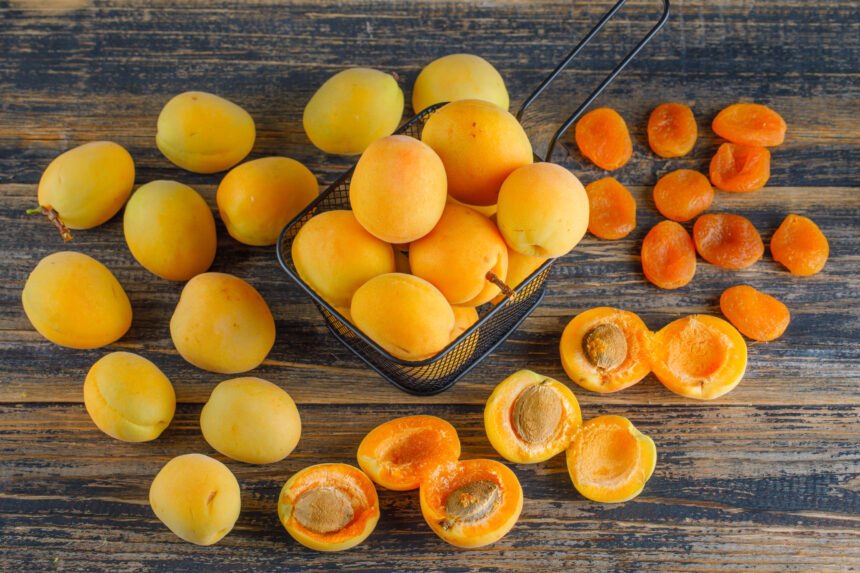Benefits of Dried Apricots for Nutrition
A serving of dried apricots weighing 100 grams offers:
- Approximately 241 calories
- 3.4g of protein
- 63g of carbohydrates
- 53g of sugar (natural)
- 7.3g of fiber
- Fat: 0.5g
- Beta-carotene, or vitamin A, has a daily value (DV) of 94%.
- 7% DV for vitamin C
- Moderate levels of vitamin E and vitamin K
- 15% DV for iron
- 33% DV for potassium
- 10% DV for magnesium
- Good levels of calcium and phosphorus are present.
Due to their high content of Vitamin A, potassium, and fiber, dried apricots are great for heart, digestive, and visual health.
Advantages of Dried Apricots for Health


Packed with plant components that provide protection
Carotenoids, flavonoids, and phenols are among the active plant compounds that are abundant in apricots. These substances serve as defense molecules for the plant and have a similar protective effect on us, bolstering our heart and immune systems and maybe shielding us from some types of cancer.
May preserve and improve vision
A rich carotenoid concentration is indicated by the fruit is bright yellow or occasionally orange flesh; the darker the color, the more carotenoid-rich the cultivar. Among its many functions in the body, carotenoids plant-based sources of vitamin A protect our eyes and postpone the beginning of age-related macular degeneration.
Could help maintain young skin
Apricots are also good for skin health because they are high in carotenoids, which help defend against the aging effects of environmental factors including pollution, smoking, and UV light.
Could preserve the transit of the digestive system
Rich in dietary fiber, apricots support healthy gastric transit and help ward off constipation. Apricots, peaches, and plums are among the fruits that contain the sugar sorbitol, which is advised for the treatment of constipation.
Could promote intestinal health
Apricots are likely to affect our gut microbiota since they are high in sorbitol, fiber, and plant defense compounds. Although there is currently no data to support these findings in humans, research indicates that apricots, even dried ones, may alter the bacterial makeup of the gut in a positive way.
Could shield the liver
Although a large portion of the research to yet has been conducted using animal models, apricots may protect the liver. According to the data, apricots’ antioxidants—such as their vitamin content and carotenoids—may offer some protection against the harm that alcohol and other pollutants can cause.
Different Apricot Types
- Turkish apricots are orange, soft, and delicious.
- California apricots are often dried and have a slight tartness.
- Royal Apricots are huge, flavorful, and golden.
How to Eat Dried Apricots
- Eat three to four dried apricots as a snack every day.
- For better digestion and nutrient absorption, soak overnight.
- Add to oatmeal, granola, and morning cereals.
- Add to desserts or smoothies.
- Use in puddings, cakes, and holiday confections.
- For a nutritious trail mix, combine with nuts like walnuts and almonds.
Concluding remarks
More than just a delicious snack, dried apricots are a great source of vitamins, minerals, and antioxidants that promote heart health, digestion, vision, and skin care. Three to four slices a day can give you a good amount of nutrients and energy.
Dried apricots really are the ideal combination of sweetness, health, and nutrition.


